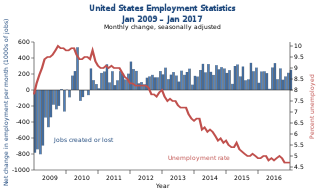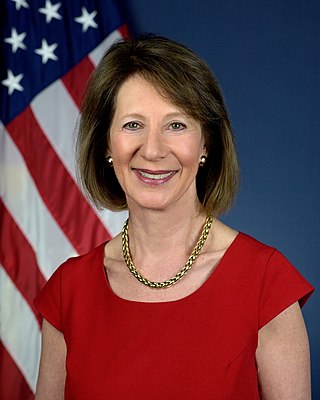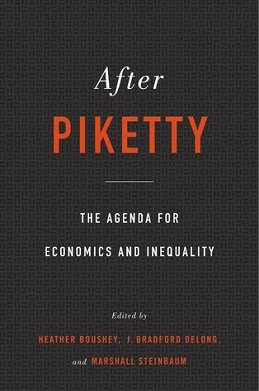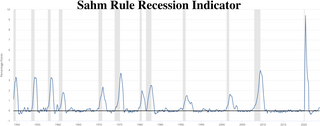
Unemployment, according to the OECD, is people above a specified age not being in paid employment or self-employment but currently available for work during the reference period.

Economic growth can be defined as the increase or improvement in the inflation-adjusted market value of the goods and services produced by an economy in a financial year. Statisticians conventionally measure such growth as the percent rate of increase in the real and nominal gross domestic product (GDP).

Economic inequality is an umbrella term for a) income inequality or distribution of income, b) wealth inequality or distribution of wealth, and c) consumption inequality. Each of these can be measured between two or more nations, within a single nation, or between and within sub-populations.

In economics, income distribution covers how a country's total GDP is distributed amongst its population. Economic theory and economic policy have long seen income and its distribution as a central concern. Unequal distribution of income causes economic inequality which is a concern in almost all countries around the world.

Cecilia Elena Rouse is an American economist and the President of the Brookings Institution. She served as the 30th Chair of the Council of Economic Advisers between 2021 and 2023. She is the first Black American to hold this position. Prior to this, she served as the dean of the Princeton School of Public and International Affairs at Princeton University. Joe Biden nominated Rouse to be Chair of the Council of Economic Advisers in November 2020. Rouse was overwhelmingly confirmed by the Senate on March 2, 2021, by a vote of 95–4. She resigned on March 31, 2023 to return to teaching. On June 28, she was named the 9th President of the Brookings Institution.

Unemployment in the United States discusses the causes and measures of U.S. unemployment and strategies for reducing it. Job creation and unemployment are affected by factors such as economic conditions, global competition, education, automation, and demographics. These factors can affect the number of workers, the duration of unemployment, and wage levels.

Betsey Ayer Stevenson is an economist and Professor of Economics and Public Policy at the University of Michigan Gerald R. Ford School of Public Policy. Additionally, she is a fellow of the Ifo Institute for Economic Research in Munich, a research associate at the National Bureau of Economic Research and servers on the board of the American Economic Association. The Obama Administration announced her appointment as a Member of the Council of Economic Advisers, a post she served from 2013 through 2015. She previously served as Chief Economist of the U.S. Department of Labor under Secretary Hilda Solis from 2010 to 2011. Previously, she was an Assistant Professor of Business and Public Policy, at the Wharton School of the University of Pennsylvania.

Female participation and advancement in majority Muslim countries, or nations in which more than 50% of the population identifies as an adherent of the Islamic faith, have traditionally been areas of controversy. Several Western nations, such as the United States and Western Europe, have criticised majority Muslim nations for the lack of involvement and opportunity for women in the private sector.

Diana Furchtgott-Roth is an American economist who is adjunct professor of economics at George Washington University and a columnist. She served as Deputy Assistant Secretary for Research and Technology at the United States Department of Transportation during the Trump administration. She previously served as Acting Assistant Secretary for Economic Policy at the U.S. Department of the Treasury.

Job creation and unemployment are affected by factors such as aggregate demand, global competition, education, automation, and demographics. These factors can affect the number of workers, the duration of unemployment, and wage rates.

Lisa DeNell Cook is an American economist who has served as a member of the Federal Reserve Board of Governors since May 23, 2022. She is the first African American woman and first woman of color to sit on the Board. Before her appointment to the Federal Reserve, she was elected to the board of directors of the Federal Reserve Bank of Chicago.

Claudia Rae Sahm is an American economist, leading the Macroeconomic Research initiative of the Jain Family Institute. She was formerly director of macroeconomic policy at the Washington Center for Equitable Growth, and a Section Chief at the Board of Governors of the Federal Reserve System, where she worked in various capacities from 2007 to 2019. Sahm specializes in macroeconomics and household finance. She is best known for the development of the Sahm Rule, a Federal Reserve Economic Data (FRED) indicator for identifying recessions in real-time.
Henrik Jacobsen Kleven is a Danish economist who is currently a professor of economics and public affairs at Princeton University. He is also co-editor of the American Economic Review. His research lies inside the domain of public economics and inequality, in particular questions about tax policy and welfare programs. He combines economic theory and empirical evidence to show ways of designing more effective public policies. His work has had policy impact in both developed and developing countries.
Stephanie Aaronson is an American economist. She received her PhD in economics from Columbia University. Aaronson served as a Senior Fellow at the Brookings Institution until December 2022, where she held the position of vice president and director of economic studies. She specializes in labor economics and her current research focuses on labor force participation in the United States. Her work has been published in academic journals, such as the American Economic Review. Her research has also been featured in prominent news publications, including The New York Times and The Economist.

After Piketty: The Agenda for Economics and Inequality is a 2017 collection of essays edited by the economists Heather Boushey, J. Bradford DeLong, and Marshall Steinbaum. The essays center on how to integrate inequality into economic thinking. Common themes are Thomas Piketty’s influence on academia and policy, the need for better wealth data, inequality in the United States, and the reasons for the process of wealth accumulation and rising inequality discussed by Piketty in his book Capital in the Twenty-First Century (2013). In the final entry, Piketty himself responds to the essays.
Since World War II, the United States economy has performed significantly better on average under the administration of Democratic presidents than Republican presidents. The reasons for this are debated, and the observation applies to economic variables including job creation, GDP growth, stock market returns, personal income growth and corporate profits. The unemployment rate has risen on average under Republican presidents, while it has fallen on average under Democratic presidents. Budget deficits relative to the size of the economy were lower on average for Democratic presidents. Ten of the eleven U.S. recessions between 1953 and 2020 began under Republican presidents.

In macroeconomics, the Sahm rule, or Sahm rule recession indicator, is a heuristic measure by the United States' Federal Reserve for determining when an economy has entered a recession. It is useful in real-time evaluation of the business cycle and relies on monthly unemployment data from the Bureau of Labor Statistics (BLS). It is named after economist Claudia Sahm, formerly of the Federal Reserve and Council of Economic Advisors.
Ellora Derenoncourt is an American economist. She is an assistant professor of Economics in the Industrial Relations Section of the Department of Economics at Princeton University and a member of the Industrial Relations Section of Princeton Economics. She was previously at the Department of Economics and assistant professor of Public Policy at the Goldman School of Public Policy at UC Berkeley. Her work focuses on labor economics, economic history and the study of inequality. Her research on racial inequality in the United States has been featured on NPR, New York Times, and The Wall Street Journal.
Michelle Holder is an American economist who is an Associate Professor of Economics at John Jay College of Criminal Justice in the City University of New York. Her research focuses on the position of Black workers and women of color in the American labor market, including wage gaps based on race and gender as well as unemployment rate differences by race and gender. In June 2021, she was named president and CEO of The Washington Center for Equitable Growth. Holder stepped down in 2022 from the presidency and transitioned into the role of distinguished senior fellow with the organization through 2023.













